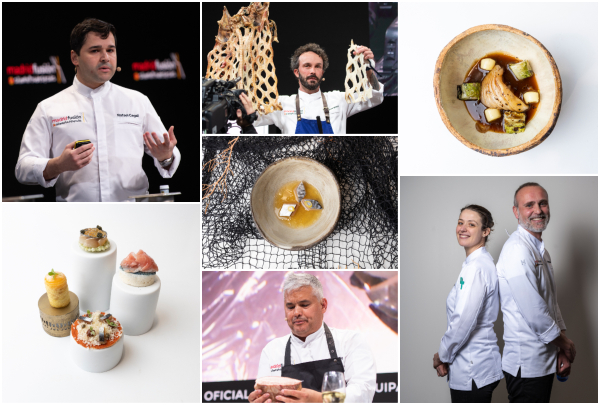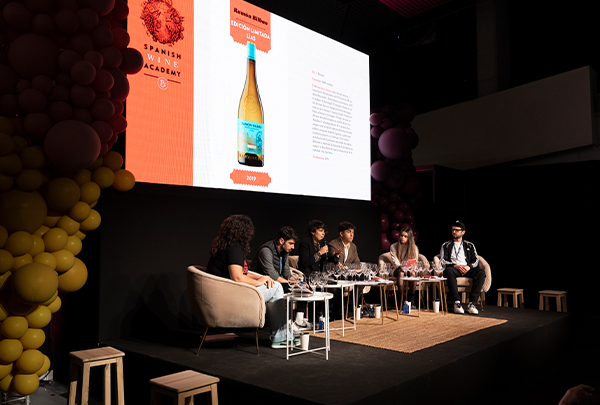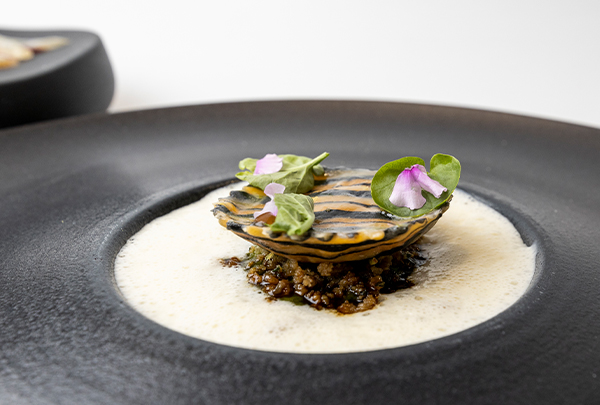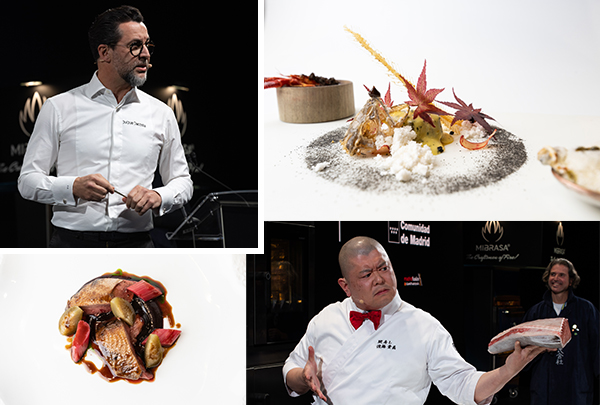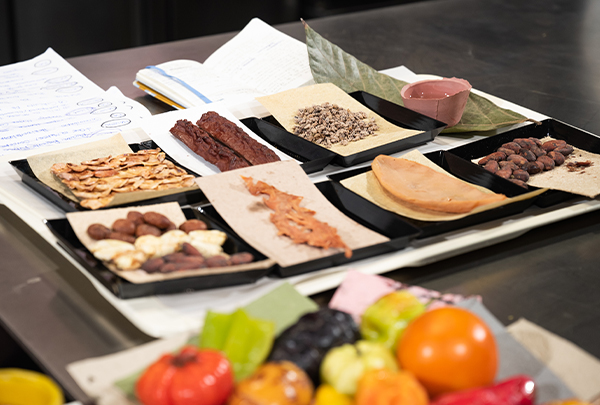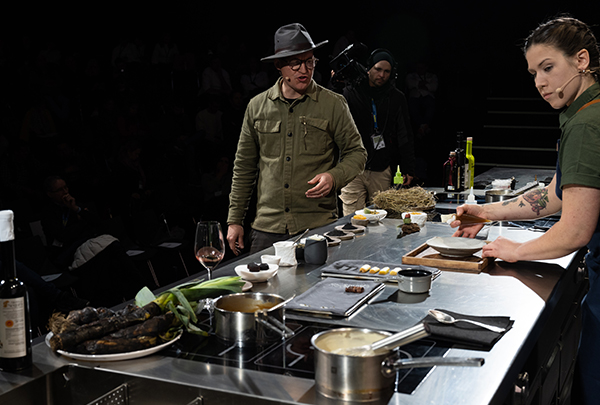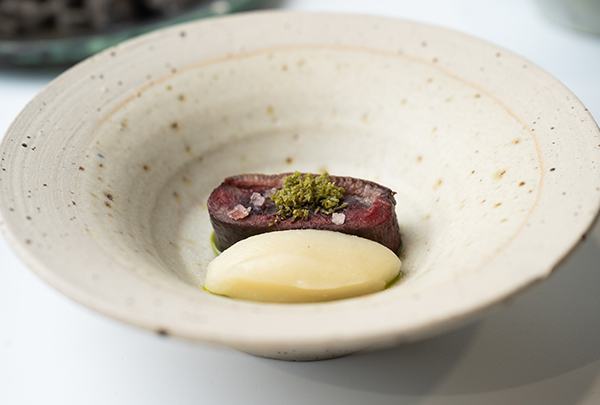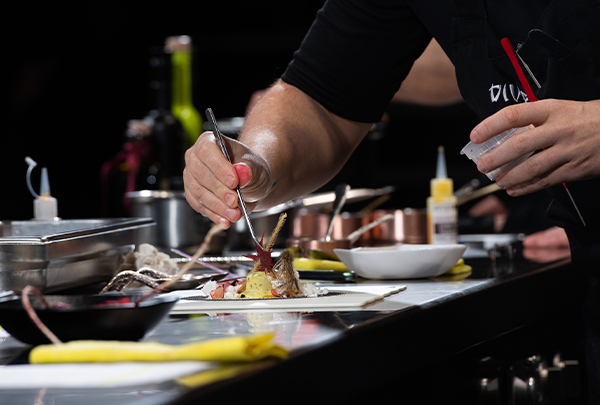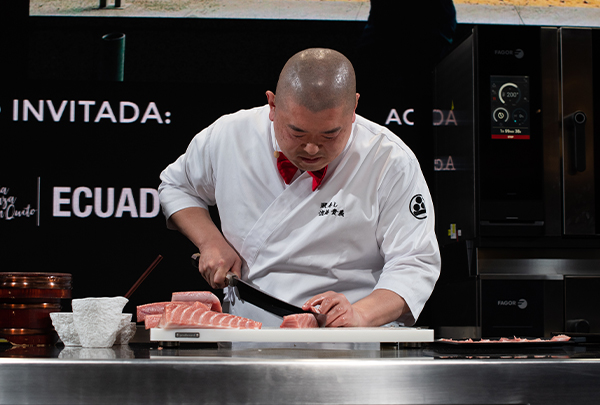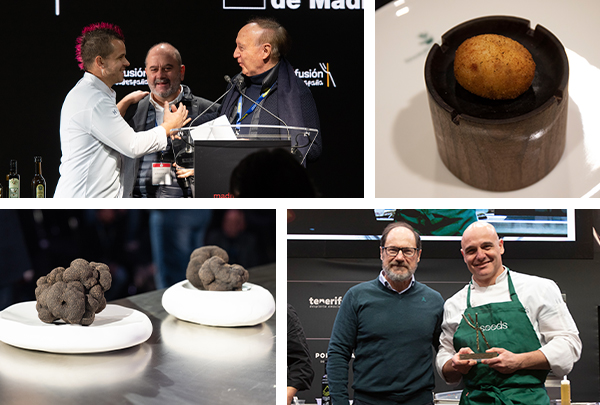News
The differentiating value of local territory, Asturias cider and wine as a catalyst of emotions
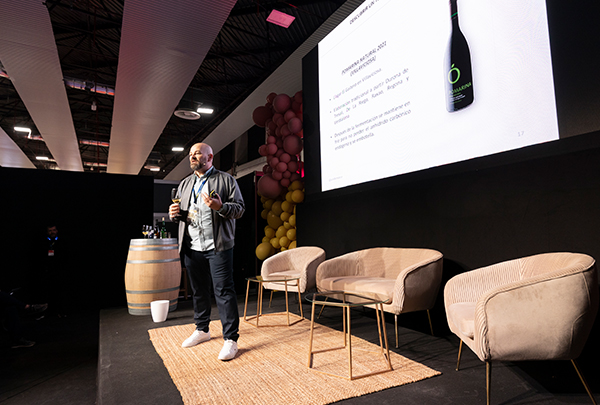
Asturias ciders and wines were a turning point on Tuesday morning thanks to the discoveries of Juan Luis García Ruiz, sommelier at the Casa Marcial** restaurant in Arriondas.
Conveying Asturias through the region's most famous beverages par excellence: wine and cider. “The Manzanos have spent years making a stand for the essence of Asturias through gastronomy, and I had to do likewise at the winery”, explained Juan Luis García Ruiz, sommelier at Casa Marcial**, during the first master tasting session on Tuesday at The Wine Edition Wines from Spain. Ciders took the initiative during a presentation offering a tour of the liquid gems most typical of Asturias by an expert on the subject.
Born in Murcia, and an adopted son of Asturias, ‘Juanlu’ García Ruiz had chosen 4 ciders for this presentation which he felt represented the different styles approved by the Regulatory Council, from the most natural to new expression, and 4 wines, two reds and two whites, to portray modern winemaking in the Cangas region. The ciders selected were: Sidra Natural Quelo 2021 Tonel 27 Lote 34922 (Tiñana - Siero), Pomarina Natural 2021 (Villaviciosa), Poma aurea Brut Nature 2019 (Lavandera - Gijón), Prau Monga Brut Nature 2020 (Nava); and, on the wine front, a taste of Vive la Vida 2020 (Cangas del Narcea), Escolinas ‘La Zorrina’ 2018 (Corias - Cangas del Narcea), Siluvio Blanco 2021 (Cecos - Ibias) and La Media Vuelta Blanco 2021 (Las Mestas - Cangas del Narcea).
Accompanied by a professional "escanciadora" or cider-server, who demonstrated how aromas and flavours are reactivated when it is poured in the traditional fashion, the Casa Marcial** sommelier explained cider's potential for combinations. “Drinking cider prolongs your life, with apologies to the wine community”, said Juan Luis García Ruiz. Cangas wine, however, with a tradition going back to the 9th century, was also a major feature of the session. With four representatives, the sommelier pointed out the freshness and joviality of the red wines produced from local varieties such as "albarín negro", "carrasquín" and "verdejo negro", and whites made from the "albarín blanco" grape, the most typical variety in Cangas, to be drunk along with Asturias ingredients such as sea urchin or hook-catch hake.
Bideona takes the Tierra de Sabor Award
The morning continued with the Tierra de Sabor Award from the brand promoting the Castilla y León food and agriculture sector for the most sustainable winery, according to the requisites established by the Madrid Fusión The Wine Edition Wines from Spain's advisory board. Bideona, a Rioja Alavesa project by Península Vinicultores, took the award at this third Madrid Fusión The Wine Edition Wines from Spain.
“We don't usually get many awards, because we don't do things that are visible and do them with conviction, and that's why this award is so important to us”, said Andreas Kuback MW, Managing Director of Península Vinicultores as he took the prize. “The entire winery was conceived with the team's conviction concerning sustainability, and this goes far beyond anecdotes; this project arose for preservation of the territory and local culture, and that includes economic and social concerns. As the English say, "you can't be green if you're in the red".
The music of wine
Mid-morning, Josep ‘Pitu’ Roca, sommelier and co-owner of El Celler de Can Roca***, delighted congress-goers with his vision of the "musicality" of wine during a master tasting session, dubbed “A furtive tear: the music of wine” and presented by ABC newspaper wine critic Pilar Cavero. “Wine, like music, is emotion, and permits an interpretation. Harmony, rhythm and structure are words that can be applied to both wine and music. During this session we will be sharing concepts that can be heard, experienced and felt”, said Roca, by way of a prelude to what was doubtless the most poetic talk of the entire event. “Music and wine are two essential components of our lives” - this was how Pilar Cavero introduced Josep Roca, one of the world's major sommeliers, for whom music has always played a particularly important role in conveying emotions and arousing memories. “A sommelier is a friend; you will always have a friend”, explained the co-owner of El Celler de Can Roca***, recalling some of the musicians and musical moments that have moved him most throughout his life, and some of the combinations he has been lucky enough to produce with music as the main theme. “In these musical performances of wine, I explain and they perform, the musicians shape pieces that explain what I feel, they trap it, and turn that condensation of emotion into something unique”, explained this wine poet. The sommelier went on to the tasting session with five enological "unicorns", five unique wines interpreted by artistes and composers such as Sílvia Pérez-Cruz, Converses Rumberes, Miguel Poveda, Verdi and Mozart, generating as many emotions as the wines. “You will feel the pain of pleasure and a song to life”, he told the congress. And that is how it was. Music as a connection to transmit wine and create emotions, during one of the star turns in The Wine Edition Wines from Spain 2023. “Wine has that ability to elevate, to admire, to move closer to the myth. You don't have to have the best wine in the world, but what is important is to be authentic in the world”, concluded Josep Roca.
A landscape "Vinomio"
At the event's second "Vinomio", Fina Puigdevall and her three daughters Clara, Martina and Carlota Puigvert, from the Les Cols Restaurant** in Olot (Girona), explained the mystical landscape cuisine on offer at the Puigdevall family farmhouse, cookery fused with the produce of nature in the La Garrotxa district. A combination which this Tuesday linked one of Spain's best chefs to one of the country's major winemaking regions, the D.O. Empordà.
Fina Puigdevall brought the auditorium some of La Garrotxa's most typical produce, such as Santa Pau beans and cod tripe, in a demonstration of her sustainable cooking, based on the produce of her surroundings. Here the major exponent of harmonies was the closest winemaking area of D.O. Empordà, with one of the region's most famous wines, Masía Carreras, a Bodega Martí Fabra white produced from white and red "cariñena" grapes and "picapoll" grapes.
Granitic harmony
Fernando Mora MW kicked off the afternoon session at Madrid Fusión The Wine Edition Wines from Spain by outlining Spain's granite soils to gain an insight into the furore caused by these wines in today's markets. “There is a tendency to consider wines produced from vines planted in granitic terrain as particularly fine and elegant, and this has aroused the interest of today's best producers”, claimed the Master of Wine. For the occasion Mora had chosen some of the wines that are all the rage, from various parts of Spain, in an attempt to comprehend the peculiarities which granite soils actually give wine, and unravel the mysteries surrounding this fascination. A journey through some of Spain's granite-soil wines, homing in on 6 of them: Leirana Finca Genoveva (Bodega Forjas del Salnés), As Sortes (Bodega Rafael Palacios), Rozas (Bodega Comando G), Lousas Rosende (Bodegas Envínate), Can Matons Vinya Can Xec (Bodega Can Matons) and El Canchorral (Bodega Viñas Serranas).
“Spain is a complex country in terms of geology, and it is difficult to talk about its soils; minerality depends on a shedload of aromas and textures that are extremely difficult to pinpoint, but they define our local terroir”, said the expert, before moving on to explain the qualitative factors of granite and its influence on wine, such as the ability of vines to prospect these soils thanks to their high drainage capacity, up to depths of four metres. “The farther down we go, the more the plant will be able to take in all the nutrients; in order to secure fineness, freshness and minerality, there must be less clay and more quartz, silt and sand”, explained Mora during the talk.
On the basis of these conclusions by wine expert Pedro Parra and the tasting of the wines chosen, Fernando Mora MW explained what a granitic wine tastes of, and why today's winemakers pursue these characteristics: “Their aromas are austere, rather ethereal and herbaceous; their energy is powerful, with full force, a mineral sensation and a tough, dry tannin. The fruit is generally contained, and this absence forms part of the essence of granitic wines, but it is offset by its nakedness on the palate”.
Tasting Room: combinations with history and sensory travel
Viñas del Vero started off the Tuesday session in the Tasting Room at Madrid Fusión The Wine Edition Wines from Spain with a presentation of “Clarión, a white wine with history”, a session conducted by José Ferrer, Enology Manager at Viñas del Vero, the González Byass winery in Somontano. This was followed by Condado de Haza with the first historic tasting of Alenza, one of the finest wines from this Ribera del Duero winery. Olga Fernández, manager of Bodegas Condado de Haza, Lucía Pascual and Rodrigo Pons, wine experts and technical directors at the wineries, took up the reins of an extremely interesting wine-tasting session. Gastronomic harmony arrived with the presentation “Diversity in combinations”, by wine professionals from the Makro España group: Víctor Ballesta, national wine buyer, Íñigo Lavado, advisory chef, Rubén Palomares, enologist in the wine department, and sommelier José María López.
This sensory trip through combinations continued with an examination of the best wines from Valdecuevas, and recipes from Chispa Bistró (Madrid). Antonio Nieto Villasante, the Valdecuevas Group's wine expert in the D.O. Rueda, took charge of the combination tasting session alongside Juan D’Onofrio and Gabriel Sodré, chefs at the Madrid restaurant. Almudena Alberca MW stole the show on Tuesday afternoon with a trip through the Zarcillo Awards, a major international winemaking event organised by the Castilla y León regional government since 1991. “30 years of history in the world of wine”, told by the winners. A grand Riedel Experience conducted by Jordi Segura, CEO of Euroselección, wound up the event.

